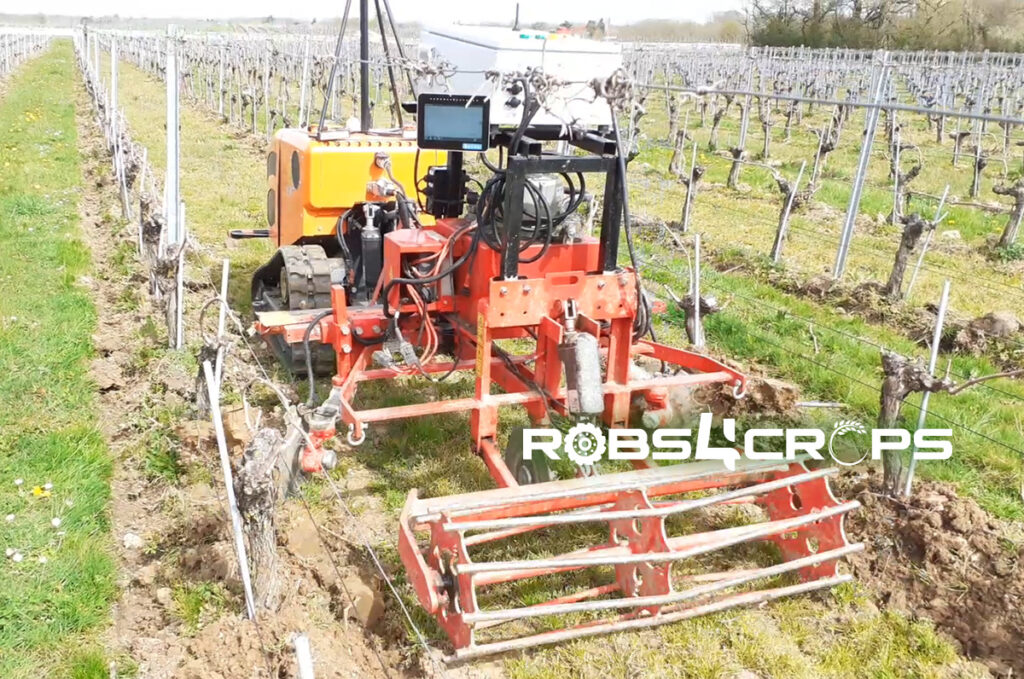Are you ready for the future of wine growing? The French pilot, LSP1, is taking a bold step to reduce the environmental impact of vineyards. By replacing chemical weed control with mechanical weeding, they aim to revolutionize the industry and utilize state-of-the-art technology. Mechanical weeding with a tractor driver is economically not attractive (5-7 passes per year, total cost €800 per ha). Also, it is difficult to attract and retain experienced tractor drivers who can operate the several different weeding implements that are used. They’re replacing human tractor drivers with a robot, to maximize efficiency and minimize costs.
So, what's the technology behind this groundbreaking project?
The CEOL robot of AGreenCulture is being used to weed vines. It consists of a small crawler tractor equipped with an AGC Box and RTK GPS technology to guide itself and different tools for weeding, depending on the type of work required. And that’s not all – In 2023, “smart implements” – a computer connected to sensors – are being added to make the robot “smarter”, adapting itself to the situation.
What challenges have you faced in implementing and adapting these new technologies in your pilot's operations? And how did you overcome those challenges?
The CEOL robot faced topographical challenges like tilted plots that are hard to navigate and mechanical challenges such as de-tracking caused by rocks and rough terrain. But the team behind LSP1 is constantly innovating and improving to overcome these challenges. While tilted plots will be avoided in 2023, de-tracking problems have been partially resolved with the change of the track wheels with sturdier ones.
How does this technology compare to traditional methods of farming in terms of cost, precision, and sustainability?
It’s a game-changer in terms of cost, precision, and sustainability. The robot aims to reduce human work hours, fuel consumption, and bring more precision to mechanical weeding by keeping a straight course. Get ready for the future of wine growing!

